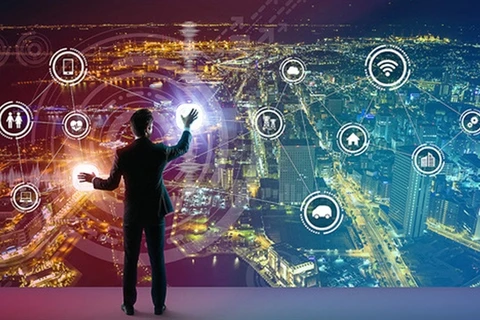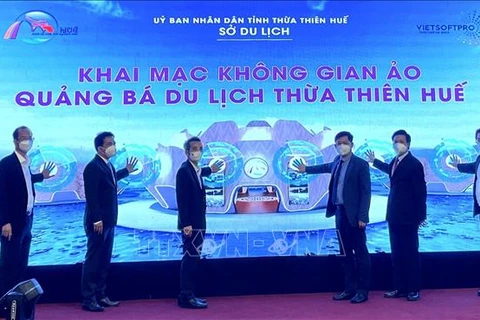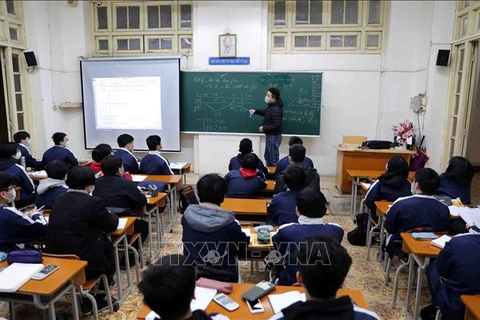Jakarta (VNA) – The acceleration of digital transformation in Indonesia can be driven through four main sectors, namely digital infrastructure, digital government, digital economy, and digital society, according to the Ministry of Communication and Informatics.
These four sectors are capable of supporting Indonesia that has the potential to clock the biggest and fastest internet economy development in Southeast Asia, according to Google, Temasek, and Bain & Company's data in 2020.
Seeing this digital potential, the ministry has created the Indonesia Digital Roadmap 2021-2024 to expedite digital transformation in accordance with the government's directive, said the Ministry's Human Resources Research and Development Head Hary Budiarto.
The ministry is trying to make digital talent in various regions take advantage of opportunities, Budiarto remarked.
In terms of infrastructure development, the ministry had built the Palapa Ring spanning a length of 12,229 km that connects 57 districts in Indonesia.
The ministry will launch the Indonesia Raya Satellite or SATRIA 1, with a capacity of 150 Gbps; 300-Gbps capacity SATRIA 2; and SATRIA 3, with a capacity of 500 Gbps, in 2023, specifically to access fast internet (Wi-Fi) in public services.
The ministry will also install 7,904 Base Transceiver Stations (BTS) in villages within the 3T (outermost, remote, and underdeveloped) regions through the Telecommunication and Information Accessibility Agency (BAKTI).
In the digital government sector, the ministry pushes for e-government with the Toward 100 Smart City Movement with six development pillars as the foundation to implement the development programme. These six pillars comprise smart governance, smart infrastructure, smart economy, smart living, smart people, and smart environment./.
These four sectors are capable of supporting Indonesia that has the potential to clock the biggest and fastest internet economy development in Southeast Asia, according to Google, Temasek, and Bain & Company's data in 2020.
Seeing this digital potential, the ministry has created the Indonesia Digital Roadmap 2021-2024 to expedite digital transformation in accordance with the government's directive, said the Ministry's Human Resources Research and Development Head Hary Budiarto.
The ministry is trying to make digital talent in various regions take advantage of opportunities, Budiarto remarked.
In terms of infrastructure development, the ministry had built the Palapa Ring spanning a length of 12,229 km that connects 57 districts in Indonesia.
The ministry will launch the Indonesia Raya Satellite or SATRIA 1, with a capacity of 150 Gbps; 300-Gbps capacity SATRIA 2; and SATRIA 3, with a capacity of 500 Gbps, in 2023, specifically to access fast internet (Wi-Fi) in public services.
The ministry will also install 7,904 Base Transceiver Stations (BTS) in villages within the 3T (outermost, remote, and underdeveloped) regions through the Telecommunication and Information Accessibility Agency (BAKTI).
In the digital government sector, the ministry pushes for e-government with the Toward 100 Smart City Movement with six development pillars as the foundation to implement the development programme. These six pillars comprise smart governance, smart infrastructure, smart economy, smart living, smart people, and smart environment./.
VNA
























